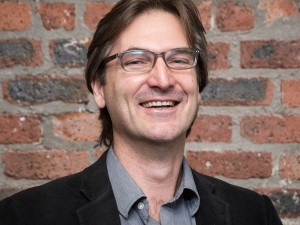Johannesburg, 20 Jul 2015

Despite the massive strides we've made in software development and business transformation with agile and its derivatives, I can't help but think that global business has reached a critical tipping point, says Stephen de Villiers Graaff, principal agile consultant at DVT.
The world economy is so large and diverse, and yet the bulk of production - in any given industry - is by and large dominated by monolithic, multinational organisations that would arguably struggle to improve their efficiency no matter which agile framework they chose to adopt.
But, what would we use in place of agile to achieve real transformation on this unprecedented scale? Put another way, what is the 'next big thing' that comes after agile and revolutionises the way we think, work and live?
In 1894, the world was knee-deep in what can only be called the 'manure crisis'. Horses were the dominant mode of transport at the time, and so cities were literally drowning in horse manure.
Consider these stats: the average work horse had a life expectancy of three years. For every day of those three years, each horse would deposit up to nine kilograms of manure and a litre of urine on the city streets. By 1900, London had a fleet of more than 11 000 horse-drawn Hansom cabs in service, and New York a population of more than 100 000 horses. You can almost smell the math.
A newspaper headline at the turn of the century declared that in 50 years, every street in London would be buried under nine feet of horse excrement. Around the same time, a planning conference in New York convened to find solutions to the horse 'problem' and concluded that there was no solution.
Of course we now know that, only a decade later, Henry Ford would find a way to make the automobile affordable. The Ford company revolutionised motorised transport, and almost overnight the nightmare scenario of the horse manure apocalypse was consigned to an historical footnote.
Fast-forward 100 years and London is in the grips of an all-new crisis, with 2.6 million privately owned cars and 23 000 registered taxi cabs. The world's motorised transport consumes more than 90 million barrels of crude oil every day. In the same day across the planet, we burn more than 14 billion litres of fuel.
At this rate, our supply of fossil fuels is heading to extinction, and despite some promising signs from the renewable energy industries, we still don't have a workable solution to the problem.
Interestingly enough, software development has remarkable parallels in these historical scenarios. In the 1940s, Japanese car manufacturer Toyota revolutionised production with ideas that were later applied to software development - such as 'just in time', 'autonomation' and the concept of continuous improvement. These ideas were filtered and refined until they evolved into the revolutionary concept of agile and its derivatives in the early 1990s. A decade later, we started looking for ways to scale these ideas to larger organisations, taking evolutionary and revolutionary leaps until we reached the point of diminishing returns.
Today we are well past that point, but the serious questions are only now being widely asked. What do we do now that we've hit the limits of effectively scaling agile?
Instead of scaling agile, would it not be more prudent to flatten the giant organisations that dominate our industries into smaller, more organic and ultimately more efficient entities? And if that were even possible, what would we use to do it?
I wish I had the answer. The truth is I don't know what comes after agile, but I know the time to find the answer is long overdue.
Share
